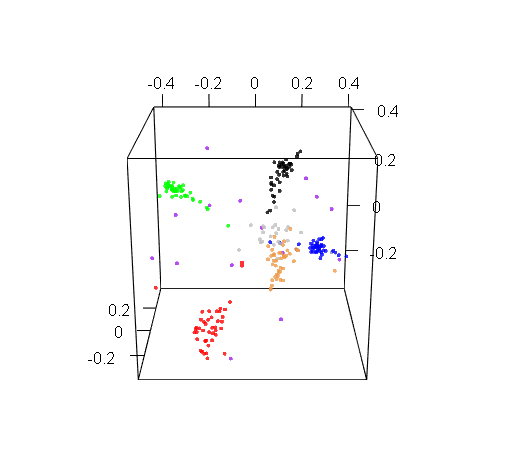This repository contains code for building and evaluating MTG drafting bots, discussed in our recent paper: "AI solutions for drafting in Magic: the Gathering" by Henry N. Ward, Daniel J. Brooks, Dan Troha, Bobby Mills, and Arseny S. Khakhalin (2020). https://arxiv.org/abs/2009.00655
All code for drafting bots can be found in the bots folder. Most scripts take MTG drafts collected from Draftsim.com as an input. The data is licensed under a CC BY 4.0 International license and is downloadable here.
To introduce each major folder and script:
- draftsimtools is a module that contains a variety of utility functions and classes for handling Draftsim data and implementing bots.
- create_standardized_set.ipynb takes in raw Draftsim data and processes it.
- create_cv_dataset.ipynb takes in processed Draftsim data and generates training and testing sets.
- load_standardized_set.ipynb demonstrates the use of processed Draftsim data.
- bayesbot_preprocessor.ipynb trains the BayesBot agent.
- train_nnet.py trains the NNetBot agent.
- testing_grounds.ipynb evaluates all bots on testing drafts.
- analyze_results.R generates all stats and figures reported in the paper.
And for files in draftsimtools:
- bot.py contains the base class that all bots inherit from.
- random_bot.py implements the Randombot agent.
- raredraft_bot.py implements the RaredraftBot agent.
- classic_bot.py implements the DraftsimBot agent.
- bayes_bot.py implements the BayesBot agent (after training).
- nnet_bot.py implements the NNetBot agent (after training).
- bot_tester.py contains the class that evaluates bots on testing data.
To make and evaluate new drafting bots, we recommend following the process outlined below:
- Download training and testing drafts from the link above.
- Process the drafts as demonstrated in load_standardized_set.ipynb.
- Make a new bot class that inherits from bot.py in draftsimtools and implements your drafting logic.
- Evaluate your bot against our existing bots by modifying bot_tester.py.
In addition to Ward et al. (2020), we also published several blog posts that dig deep into exploratory analyses of Draftsim data.
- Basic analysis: introduces co-drafting distances and MDS scaling.
- Changes in drafting: discusses drafting of the same set early in the season, compared to late in the season. Also, statistics of color preferences (aka Guilds) among players.
- Controversial cards: discusses cards that are loved by some people, but disliked by others (original idea by Bobby Mills). This analysis turned to be rather fancy, as we ran into a couple of mathematical paradoxes.
- Color wheel: similar analyses as the above for guild-based blocks (GRN and RNA).
- Eldraine bot: Ryan Saxe's bot presents a very cool offshoot of this project.
Raw data used in this project (for the M19 MtG set) is available here: https://draftsim.com/draft-data/
In addition to drafting bot code, the archive folder contains miscellaneous scripts for visualizing and analyzing Draftsim data.
Code commentaries:
- Basic analysis in R: markdown notebook, and the same thing rendered in HTML (with ggplot graphs and everything).
The project is supported by a small team of people: Arseny Khakhalin, Bobby Mills, Dan Troha, Daniel Brooks, and Henry Ward. Feel free to reach out to us with any questions or comments.
